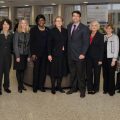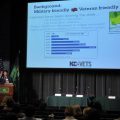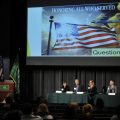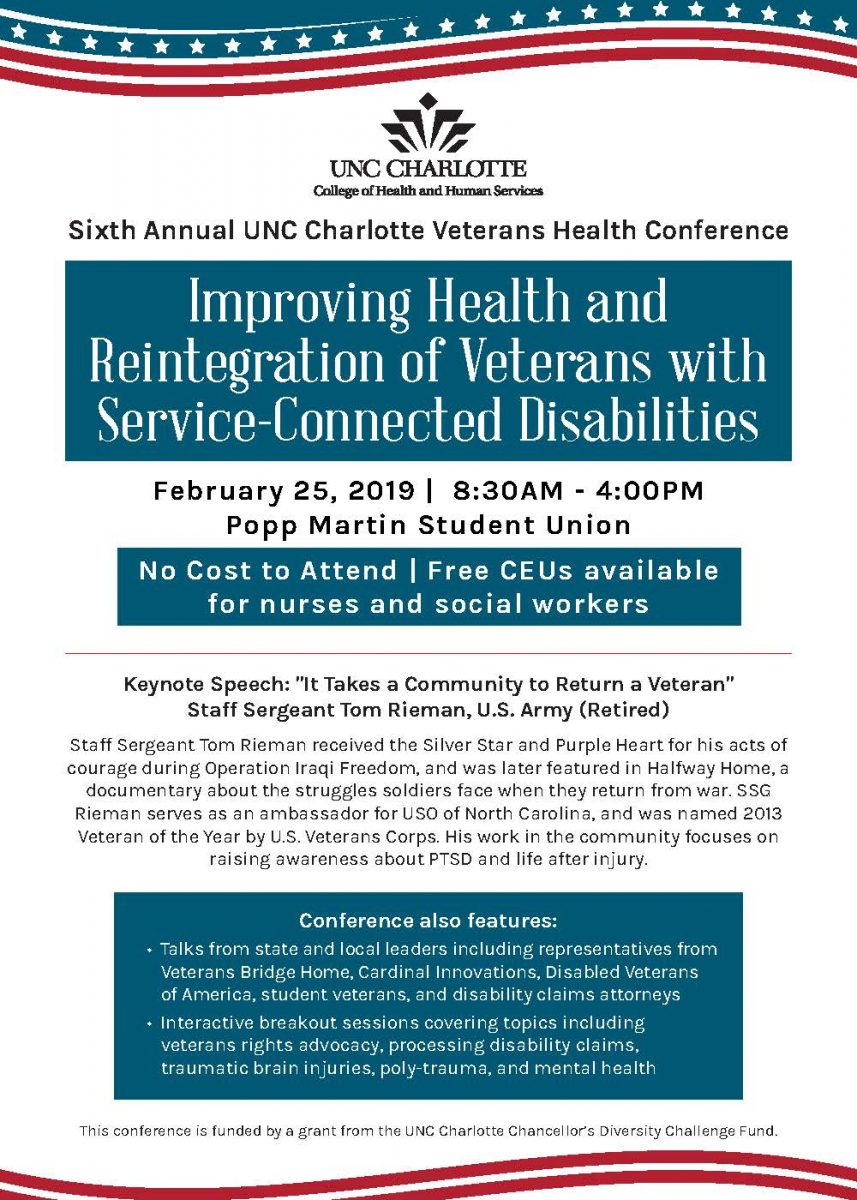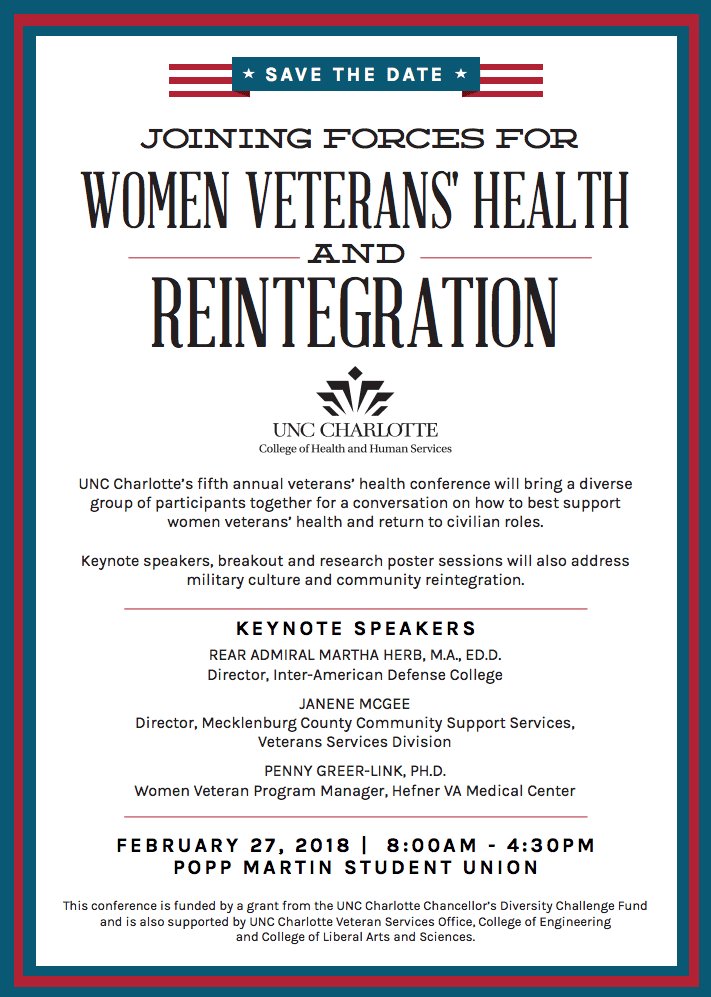Conferences
Sixth Annual UNC Charlotte Veterans’ Health Conference
February 25, 2019
Fifth Annual UNC Charlotte Veterans’ Health Conference
February 27, 2018
Fourth Annual UNC Charlotte Veterans’ Health Conference
February 28, 2017
*CEUs Available for Social Workers.
*This continuing nursing education activity was submitted for approval by the North Carolina Nurses Association, an accredited approver by the American Nurses Credentialing Center’s Commission on Accreditation.
Veterans’ Health Conference:
Wednesday, February 25, 2015
Hosted by CHHS and headlined by Director of North Carolina Veterans Affairs Ilario Pantano and retired Major General Marianne Mathewson-Chapman, the meeting focused on how a better understanding of veteran culture and a holistic approach to healthcare can improve both its quality and accessibility for veterans.

Veterans’ health is an issue that resonates deeply in North Carolina; the state is home to more than 800,000 veterans, and the third-largest military force in the country. Despite this, Pantano said North Carolina hasn’t always been veteran friendly.
Pantano’s administration has responded to historical shortcomings by developing a strategy it says will turn North Carolina into the nation’s most veteran friendly state. He outlined the plan in a presentation to an audience that included veterans, healthcare professionals, academics, and concerned citizens. Pantano said NCDVA’s four-prong strategy focuses on 1) upgrading the efficiency of its own operations; 2) improving cooperation between agencies; 3) better communicating with veterans across the state and; 4) pushing a renewed legislative agenda.
Pantano is a former Marine sniper and platoon commander who served during the Persian Gulf War and in Iraq following the 2003 U.S. invasion. Under his leadership, NCDVA has taken steps to pursue its strategic agenda. The agency is active in the governor’sworking group on North Carolina veterans. It has also launched a jobs initiative and a campaign intended to improve communications with the state’s veterans.
Major General Mathewson-Chapman, former Deputy Surgeon General for the National Guard, spoke Tuesday about the importance of a “holistic service delivery model.” Mathewson-Chapman argued veterans’ wellness should be broadly defined to encompass needs met by both health and social services. Housing, financial, legal, employment, and family needs must all be addressed in a comprehensive veteran’s healthcare network, she said.
A tension between competing realities may be behind some of the flaws in current programs. The system must respond to a vast array of experiences and needs while simultaneously providing a comprehensible experience to individual veterans. The former concern has prompted the creation of a bewildering web of agencies and organizations tasked with providing specific services, while the latter seems to demand just the opposite—as veterans often express frustration with program overlap and bureaucratic inefficiency.

